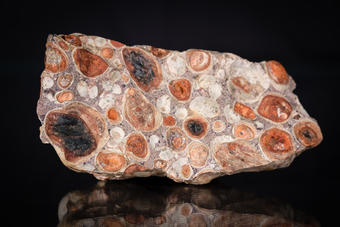Alcoa aluminium producer to trial renewable energy
Renewable energy will be used to refine alumina for the first time in Australia.

ARENA has announced support for a new project trialling renewable energy in the alumina refining process at a facility in Western Australia.
In the first project of its type in Australia, Alcoa will trial a new way of generating steam required for the refining of naturally occurring bauxite material into alumina that can be smelted into aluminium.
The highly energy-intensive process involves the extraction of alumina and removal of residues from the bauxite using heat generated by high pressure steam produced using fossil fuel.
Alcoa’s project will trial a process known as Mechanical Vapour Recompression (MVR), using renewable energy to recycle waste steam that would otherwise be exhausted to the atmosphere.
The approach is seen as an alternative to producing steam using renewable energy, offering a way to improve efficiency while reducing costs and emissions.
Electrifying hard-to-abate process
ARENA is providing $11.3 million towards the $28.2 million project, which will take place at Alcoa’s Wagerup refinery, located about 120 kilometres south of Perth.
ARENA CEO Darren Miller said the Alcoa aluminium project could create a pathway to reduce emissions for a hard to abate sector.
“It’s great to see companies like Alcoa take the initiative to create a pathway to reduce their emissions in what is an energy-intensive hard to abate process,” Darren Miller said.
“This technology represents an opportunity to electrify a refining process that is currently powered by fossil fuels using a renewable solution which addresses our investment priority of helping industry to reduce emissions, as well as the Government’s Technology Investment Roadmap. This is an important step on the pathway towards green aluminium in Australia.”
Big opportunity
In 2019, Australian alumina refining accounted for more than 14 million tonnes of carbon dioxide emissions, representing approximately 24 per cent of Australia’s scope 1 manufacturing emissions.
Alcoa says MVR technology powered by renewable energy has the potential to reduce an alumina refinery’s carbon footprint by 70 per cent and also significantly reduce water use. Using lower carbon alumina in smelting will help to reduce the carbon footprint of aluminium, which accounts for emissions across the bauxite mining, alumina refining and smelting and casting processes.

Alcoa’s VP for Continuous Improvement and Refining Technology Eugenio Azevedo said, “Already, Alcoa is the world’s lowest carbon intensity alumina producer, and the application of MVR, if proven successful, can be an important step forward in further reducing greenhouse gas emissions.”
“With MVR, there is potential to significantly reduce carbon emissions from our refining operations and in the aluminum industry more broadly.”
Emerging market
Bloomberg recently reported a surge in demand for “green aluminium” in Europe, noting a transaction between German automotive giant BMW AG and Emirates Global Aluminum PJSC to buy 43,000 tons per year of aluminum produced using solar power.
Bloomberg noted, “This would be among the first times that consumers and producers agreed to pay a premium on aluminum with a smaller carbon footprint, likely made by tapping renewable power sources such as hydroelectricity or solar to produce the metal. The sales indicate some consumers are willing to pay more for greener aluminum.”
Low emissions steel and aluminium were flagged as priorities in the Australian Government’s 2020 Low Emissions Technology Statement, which cited an opportunity to “help to reduce international emissions cumulatively by over 500 Mt CO₂-e over the period to 2040.”
LIKE THIS STORY? SIGN UP TO OUR NEWSLETTER

ARENA